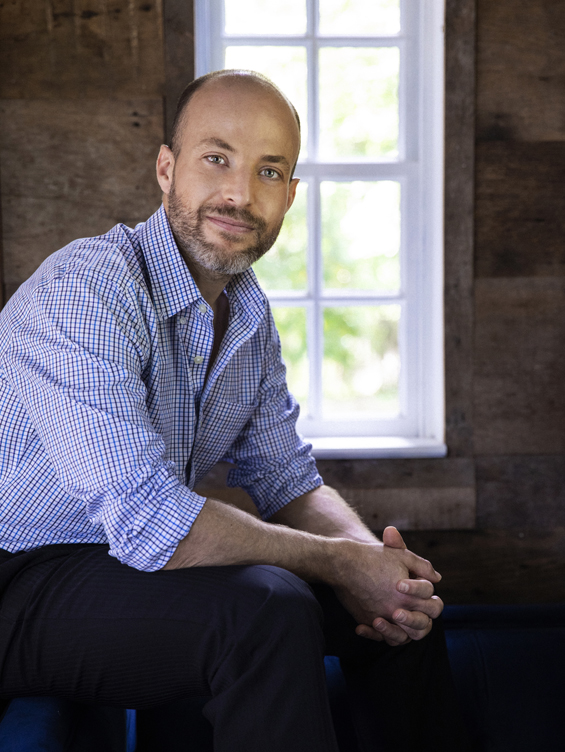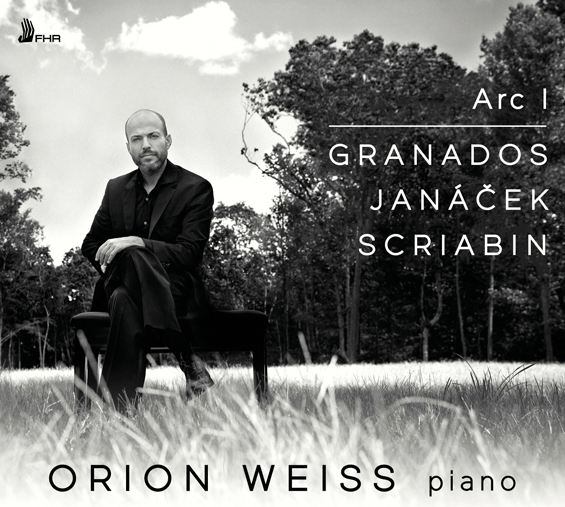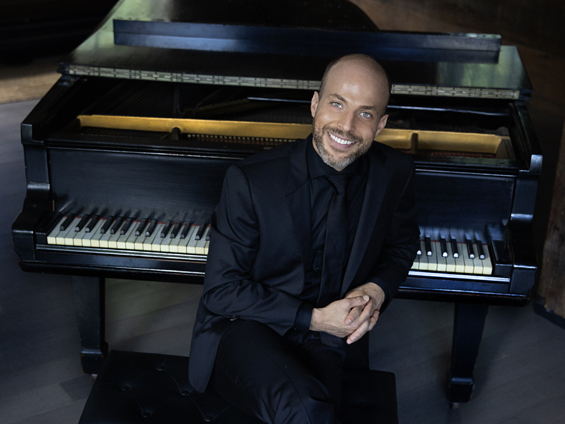

photo: Lisa-Marie Mazzucco
FIVE QUESTIONS WITH ORION WEISS
Classical pianist Orion Weiss has seen and done much since graduating in 2004 from the Juilliard School. In the years since, the Lyndhurst, Ohio native has been the deserved recipient of numerous awards and performed with elite orchestras, among them the Chicago Symphony, Boston Symphony, Los Angeles Philharmonic, San Francisco Symphony, Philadelphia Orchestra, Pittsburgh Symphony, Toronto Symphony Orchestra, and New York Philharmonic. He's also a sought-after chamber musician who's partnered with violinist Arnaud Sussman, cellist Julie Albers, and others, and boasts a discography that includes releases featuring works by Webern, Gershwin, Scarlatti, Brahms, and Christopher Rouse. Weiss's latest recording project is an ambitious trilogy whose first volume has just been released. Collectively titled Arc, the series' inaugural chapter focuses on material written just before World War I and will be followed later this year by the second, its focus works composed during the world wars, and the third covering the recovery years following them. textura had the great and good fortune to speak recently with the celebrated pianist about this remarkable project.
1. The Arc trilogy concept you devised for this ambitious three-part series is audacious, imaginative, and inspired. From where did the idea for the project originate?
I wish I could tell you that it sprang fully formed from my mind, complete and coherent at first go. But no, it grew in stages, step by step. First there was trilogy jealousy: why were there no piano CD trilogies? Why should Spiderman or the hobbits get to have all the fun? And next came what I am always doing: trying to understand the world through music. We are living in difficult times, with the world changing faster than I can keep up. I tend to look to musical stories for hope and to composers for the philosophy of perseverance. For these CDs, there was a lot of assembly and disassembly—playing around with lots of repertoire to see what fit, finagling to find the pieces that most resonated with each other.
I think that the musical connections the Arc series tries to illuminate are a representation of a lifelong process: trying to establish a personal relationship to the vast piano repertoire. As a music student one learns the historical connections between the composers, their aesthetics, their eras. But understanding great music as it relates to our own lives, our own times, what it can teach us—that all takes a whole lot longer.
2. What led you to choose Enrique Granados' Goyescas, Op. 11, Leoš Janácek's In the Mists, and Alexander Scriabin's Piano Sonata No. 9, Op. 68, “Black Mass” for the first set when the number of works written during the 1911-13 period is considerable. What was it about these three that made you settle on them specifically?
It all started with Goyescas. I learned those six pieces as fast I could in the last months before my daughter was born, thinking that they would be the last new music I would ever have the chance to study! After she was born, I was relieved to find that babies sleep long hours, take naps, and, eventually, go off to school. My fears of the end of my repertoire were unfounded, but I'm not sure anything but an impending baby would have motivated me to learn Goyescas' thousands of notes.
Goyescas is so dark—it starts with such optimism and hope, and deteriorates into such a murk of nostalgia and loss; it's really a tragic piece. And In the Mists continues from where Granados leaves off—filled with nostalgia, so sad, yet still so vivid and immediate, like improvisations directly from a distraught nervous system. I felt that they belonged after the Goyescas, that they echoed one another. Granados and Janácek simply go together! And we can't deny the undercurrent of fear running through the music of that time in history—the Scriabin sonata is downright scary, so I needed that too. All of the pieces on the CD are ominous—in fact, the original planned title for Arc I was Presentiment.

3. At fifty minutes, Goyescas comprises the major portion of the seventy-five-minute release. Could you elaborate on your characterization of the work as “a towering masterpiece of motivic development,” which appears in the notes you wrote for the release?
Granados uses small motives and short themes over and over throughout the set. Each theme has a meaning (made clear by the music's content) when it is first heard, a part of the story—but that meaning changes and progresses as the story moves on. Especially in the fifth and sixth pieces, which serve as recapitulations and transformations of all the themes heard in the pieces before and where the old themes take on altogether different meanings. A melody from the second movement that first represented youthful love transforms in the fifth piece to a heartbreaking memory of dashed hopes. That same theme in the sixth piece is stripped of heartbreak and there sounds like sarcastic and cruel laughter at love's naïveté. It's pretty amazing to hear it and feel it, and playing the whole set feels like acting out a one-man opera.
4. Have you recorded all three volumes or only the first one, with the set-lists for the other two determined but with the actual recording to follow? If all three have been recorded, what made you decide to issue them in separate instalments rather than as a three-volume set?
They are all recorded—the second is totally done and “in the can,” so to speak. The third one is done being recorded, with still some editing to go. We decided to release them in instalments because…. well, because I just couldn't wait to share them with people! Maybe we will release a collector's edition box set when they are all out. Maybe a blooper reel too. Maybe I will re-record them all in fifty years! It's been such a fun project.

photo: Lisa-Marie Mazzucco
5. You've performed with a large number of artists and orchestras, including a 2005 tour of Israel with Itzhak Perlman conducting the Israel Philharmonic Orchestra, and at Lincoln Center, the Musée du Louvre, and many other places, and the range of material you perform and record is vast. What has the experience been like of performing around the world and with such incredible artists and orchestras?
I'm so glad for the mountain of piano repertoire I see looming in front of me, absolutely unconquerable, overwhelming, awe-inspiring. I'm glad for the wide world of music-loving people, the innumerable beautiful venues I've seen and the ones I've yet to visit. I'm so thankful for a world filled with amazing musicians, inspiring people to collaborate with! Music is an entire universe filled with riches (not actual riches, though, if you're a classical musician, but that's okay, spiritual riches are more valuable anyway) and my life absolutely overflows with gratitude for it.website: ORION WEISS
April 2022![]()